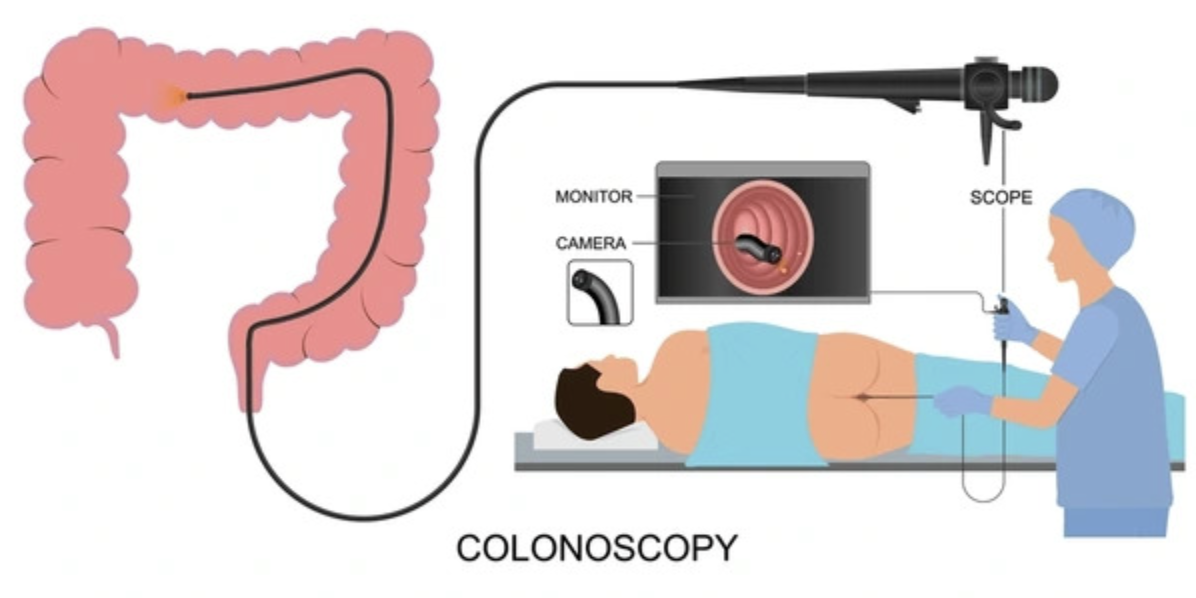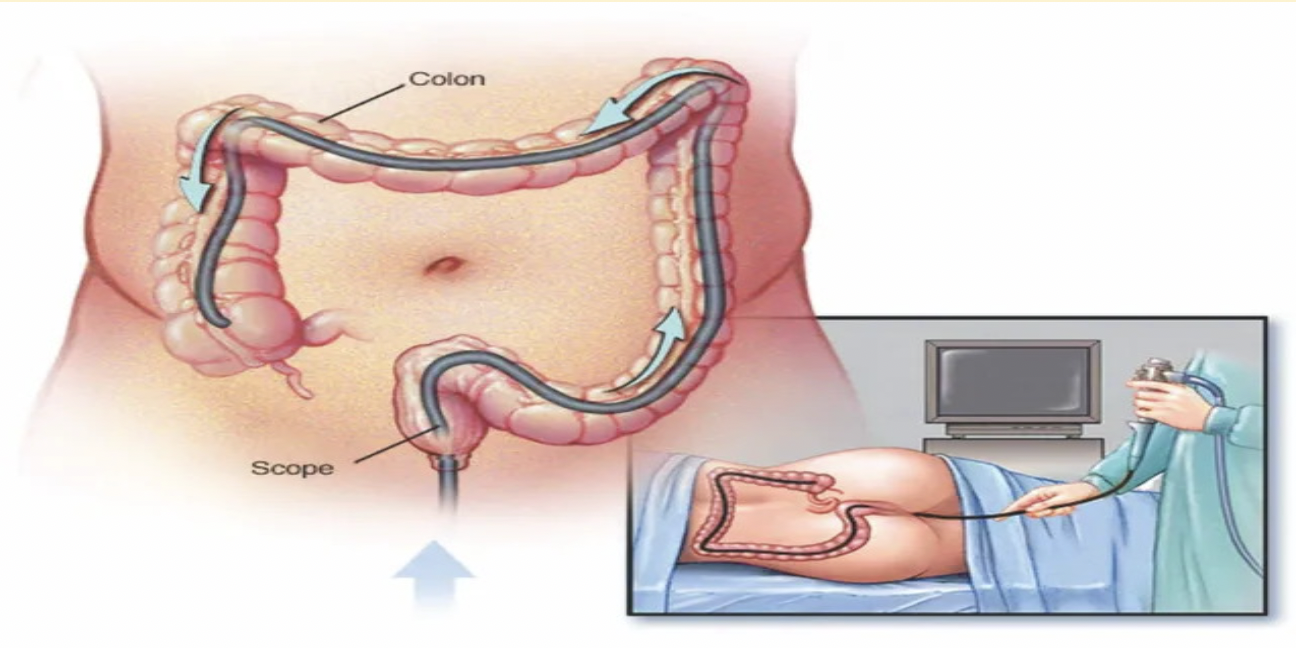Overview
A colonoscopy is the examination of the inside of the large intestine (colon). It is used to diagnose gastrointestinal diseases, such as inflammatory bowel disease and colon cancer. Colonoscopy may also be used to treat and prevent colon cancer. Healthcare providers recommend this procedure as a part of routine screening in middle-aged and older adults who are prone to developing cancers because of family history and other reasons.
What is Colonoscopy?

A colonoscopy refers to the examination of the inside of the large intestine, including the colon, rectum, and anus. It is an endoscopic procedure that utilizes an endoscope—a flexible, thin tube with a lighted camera to check for defects and abnormalities in these organs. During the procedure, the colonoscope passes through the anus and rectum into the colon. The camera captures images and videos and sends the pictures to a large screen.
A colonoscopy may be used as a therapeutic, diagnostic, and even preventive procedure. In many cases, it can be all three. Your healthcare professional may suggest regular colorectal screening if you have a statistically increased chance of getting colorectal cancer.
When to see a doctor?
People with a family history of colorectal cancer should start regular colonoscopy screenings after the age of 45. In addition, you must be watchful of a few signs and symptoms and seek immediate medical help if they persist.
- If you experience inflammatory bowel disease (IBD) or ulcerative colitis, you may be at a higher risk of developing colon cancer. Be watchful of the symptoms of the condition and visit the doctor if you experience persistent abdominal pain, bright red or black stools, changes in the appearance of stools, exhaustion, and unexplained weight loss.
- If you happen to live in ashok vihar or nearby area then you must visit the Dr Sengupta for colonoscopy in Ashok Vihar if you had a history of polyps or a previous colorectal cancer diagnosis.
Procedure

Before
Before a colonoscopy, the doctor will instruct you to clean or empty your colon. Any residue in the colon may make it difficult to get accurate findings of the procedure. Follow the special diet a day before the procedure. It includes drinking clear liquids, avoiding carbonated drinks, and not eating or drinking anything after midnight of the exam. The doctor will also recommend taking a laxative before bedtime and early in the morning of the day of the procedure. If you are on medication, discuss it with them, and they will instruct you to adjust your medicines accordingly.
During
You will be put under sedation or anesthesia to avoid any kind of pain and discomfort during the procedure. The healthcare professional will combine a sedative with pain medication and give it directly into your bloodstream through IV. You will be made to lie on your side with your knees drawn to your chest. A colonoscope will be inserted through the rectum.
The scope, long enough to reach the entire length of the colon, comprises a light and a tube, allowing the doctor to pump air, carbon dioxide, or water into the colon to inflate it and offer a better view of the colon’s lining. The tiny video camera at the tip of the colonoscope will capture images and videos and send them to the external monitor so that the doctor can study the inside of your colon. If required, they will also insert instruments through the channel to take tissue samples for biopsy or remove polyps and abnormal tissues. The entire procedure finishes in 60 minutes.
After
After a colonoscopy in Ashok Vihar, it will take you an hour to recover from the effects of sedation. Do not drive yourself home and allow yourself complete rest until you fully recover from the sedation. You may feel bloated for a few hours and also notice a small amount of blood with the first bowel movement.
Consult the doctor if the blood continues to come out or in case of persistent abdominal pain and fever. Follow their instructions to recover completely.
Why Choose Us?
Dr. Anando Sengupta and his team perform a high volume of colonoscopies every year with the use of the latest state-of-the-art technologies to ensure maximum comfort and minimum pain to the patients. The team-based approach and specialized expertise at Dr. Sengupta’s clinic offers the best colonoscopy in ashok vihar for your colorectal condition. Whether you have colon polyps, inflammatory bowel disease, or colon cancer, each patient’s journey is thoroughly studied to design the best treatment plan.
Many individuals avoid colonoscopies because of the fear of pain and discomfort. At Dr. Sengupta’s clinic, all your concerns and worries are listened to and addressed. At each step of the procedure, the doctor ensures that this process is easy for you.
Frequently Asked Questions
It takes 30-60 minutes to complete a colonoscopy. In cases where a colonoscopy is done along with a surgical procedure, it may take more time.
Colonoscopy may lead to a little pain and discomfort, which is why the healthcare professional puts you on local or general anesthesia to ensure minimal discomfort.
Polyps can be removed during a colonoscopy. This procedure is termed polypectomy, and the healthcare professional removes polyps using instruments passed through the scope.
After a colonoscopy, the healthcare team will monitor your vitals. It takes 30-60 minutes to recover from sedation. You may feel bloated or gassy for some time.




